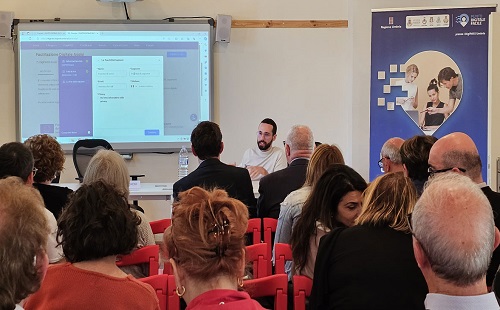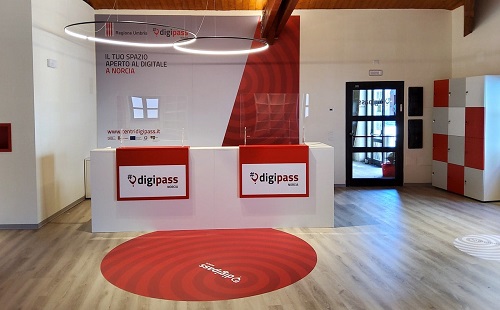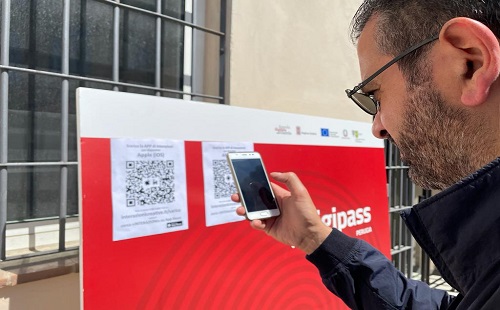Digital Inclusion in Umbria: The DigiPASS Model
The project in brief

The story of the project
Ensuring universal access to digital public services is now essential to foster inclusion and reduce inequalities, breaking down technological barriers and promoting active and informed citizenship.
This is one of the cornerstones of territorial cohesion and lies at the heart of DigiPASS, an initiative promoted by the Umbria Region with the support of the Department for Digital Transformation (DTD) of the Prime Minister’s Office and backed by European and national cohesion policies. DigiPASS serves as a concrete example of how technologies can bring citizens closer to institutions, simplifying their daily lives.

Funded with a total of approximately €3 million under the 2014–2020 structural funds programme, with continuity ensured for the 2021–2027 cycle and in alignment with the NRRP (National Recovery and Resilience Plan), the DigiPASS network includes over 60 access points across Umbria, distributed across the region's 12 social areas.
These spaces, located in strategic venues such as libraries, cultural centres, and town halls, are easily accessible and designed to welcome citizens of all ages. They offer support for accessing the Public Administration’s digital services.
Visitors to the “Easy Digital Points” receive personalised assistance: from older adults needing practical help to complete online forms or wishing to learn how to use digital services – such as SPID (Public Digital Identity System), PagoPA, or the electronic health record – to young people exploring new tools for digital education or gaining a deeper understanding of responsible social media use and other communication tools.

DigiPASS’s stated mission is to make digital public services accessible to everyone, including those with limited technological skills or those living in less connected rural areas. For Umbria, a region characterised by complex geography and numerous remote areas, DigiPASS acts as a key instrument of territorial rebalancing, embodying one of the core principles of cohesion policies: ensuring equitable access to services and reducing regional and social disparities.
These goals are strengthened through free training opportunities, including workshops, courses, and seminars aimed at enhancing the population’s digital literacy. The initiative also promotes IT literacy activities targeted at schools and local associations.
Assisting citizens, businesses, and associations are digital facilitators – experts who provide training at regional DigiPASS centres and guide individuals in accessing digital services and tools safely and responsibly. To date, around 14,000 citizens have benefitted from DigiPASS’s assistance and training services.

Combining technology with human relationships is the cornerstone of the project, as emphasised by its promoters during the inauguration of access points. The aim is not only to provide technological tools but also to build an inclusive ecosystem where everyone feels empowered to be part of the digital transformation. When managed inclusively, digitalisation can become a powerful tool to strengthen civic participation.
Through DigiPASS, Umbria champions a development model that unites innovation with inclusion. It stands as a concrete example of how territorial cohesion – and digital citizenship in particular – can lead to tangible improvements in the quality of life, building a fairer society where everyone has equal opportunities to contribute to collective wellbeing.
